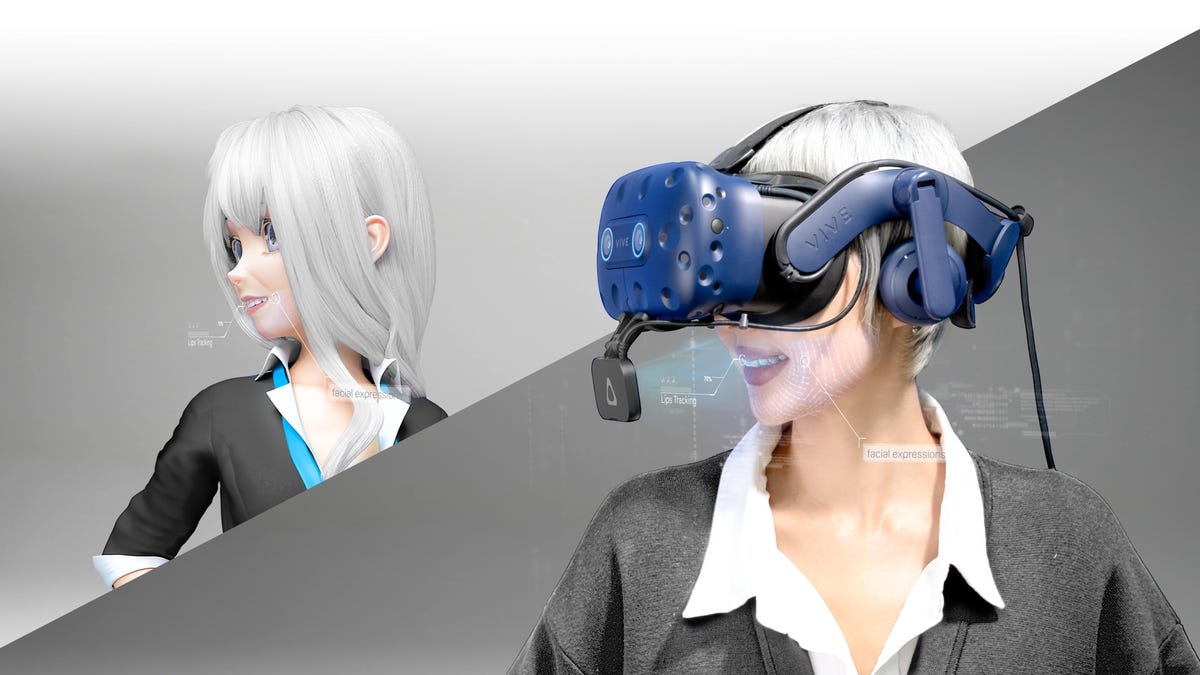HTC's new VR face tracker can scan your lips, tongue and chin
The lower half of your face can now enter VR with HTC's newest VR accessory.

The Vive Facial Tracker scans the bottom part of your face, particularly your mouth and facial muscles.
Virtual reality can track your body, your head and even your eyes. The rest of your face is next.
Facebook's Mark Zuckerberg recently discussed an interest in eye and face-tracking in VR to create more realistic avatars. Oculus headsets don't have eye- or face-tracking technology yet (although the VR chip on the Quest 2 could handle it). But there's a VR accessory for PCs coming this spring that could animate your avatars.
HTC's newest VR accessory, the Vive Facial Tracker, uses two cameras and an infrared illuminator to track facial movements at 60Hz, including what the company says are "38 facial movements across the lips, jaw, teeth, tongue, chin and cheeks giving an accurate real-time depiction of almost the entirety of the lower facial area in VR."
The Facial Tracker fits onto the company's business-focused Vive Pro Eye VR headset, which already has eye tracking. The $130 accessory is available March 24.
HTC's new Vive Tracker is a three-pronged device like the original, but smaller (comparison via HTC).
HTC also announced an update to its Vive Tracker, a wireless set of tracking devices that can attach to hands, feet, or accessories to add additional objects or body movements to VR. The Vive Tracker 3.0 is smaller than previous Vive Trackers, and has better battery life (up to 7 hours, according to HTC). The trackers, also coming March 24, cost $130 each. We haven't tried either peripheral yet, but we've spent time with HTC's eye-tracking Vive Pro Eye and Vive Trackers in the past.

